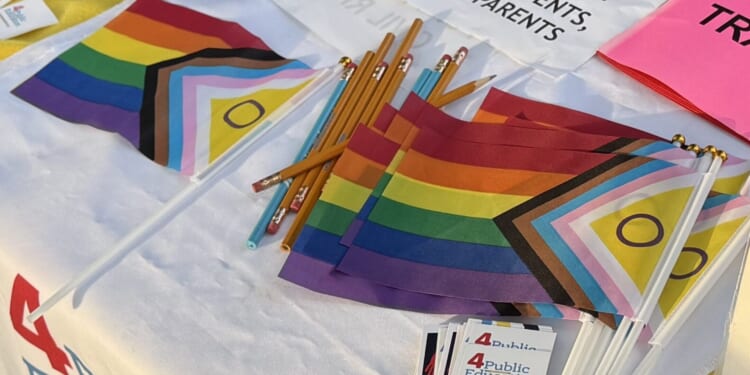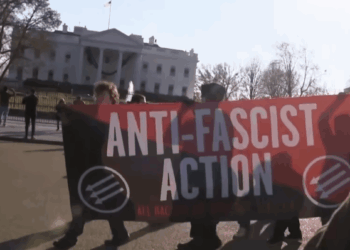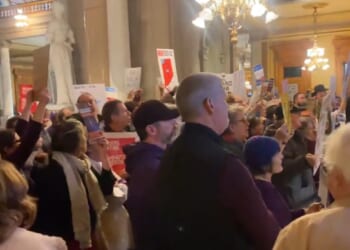Students cannot be forced to use “preferred pronouns” when referring to others who claim to be “transgender” because it violates the First Amendment, according to a Thursday ruling from the U.S. Court of Appeals for the Sixth Circuit.
Ohio’s Olentangy Local School District (OLSD) cannot “wield their authority to compel speech or demand silence from citizens who disagree with the regulators’ politically controversial preferred new form of grammar,” a 10-7 en banc decision states.
“American history and tradition uphold the majority’s decision to strike down the school’s pronoun policy,” the court stated. “Over hundreds of years, grammar has developed in America without governmental interference. Consistent with our historical tradition and our cherished First Amendment, the pronoun debate must be won through individual persuasion, not government coercion. Our system forbids public schools from becoming ‘enclaves of totalitarianism.’”
The lawsuit was originally filed by Defending Education (DE) in 2023, arguing that the school district’s anti-harassment policy compelled “students to affirm beliefs about sex and gender that are contrary to their own deeply held beliefs.”
“The court’s decision – and its many concurrences – articulate the importance of free speech, the limits and perils of public schools claiming to act in loco parentis [in place of a parent], and the critical role of persuasion – rather than coercion – in America’s public square,” DE founder and president Nicole Neily said in a statement.
DE said that students who did not want to be forced into using the “preferred pronouns” requested by their gender-confused peers risked being punished by the school, including suspension and expulsion, because the school district considered the “transgender”-identified students as a protected class.
Students’ options were to risk punishment by not going along with the mandate, act against religious beliefs and and scientific reality and use the “preferred pronouns,” or have their speech chilled out of fear of being punished.
The mandate extended beyond being in school as well, as, according to the court, “the School District’s ban on biological pronouns extends far beyond the classroom — indeed, its anti-harassment policies reach personal speech on social media off school grounds.”
Like so many other school districts with absurd “transgender” policies, including ones that allow those of the opposite sex to use restrooms and locker rooms not meant for them, OLSD put the brunt of the burden to respond to the totalitarian “transgender” requirements fully on the students who are not claiming to be a different gender.
“The School District responds that it would permit ‘accommodations’ that would allow students to ‘avoid using pronouns’ at all if they refuse to use preferred pronouns,” the court stated, showing how the other students would still have to change their activity and seek accommodation to adhere to the school-imposed gender ideology.
“The School District has not just entered this policy debate. It has taken a side. The School District has ‘targeted’ a speaker’s use of biological pronouns as improper while allowing students to use preferred pronouns (no matter how novel),” the court continued. “The District’s ban on the use of biological pronouns regulates speech on a public concern in a way that discriminates based on viewpoint. So the District bears a heavy evidentiary burden to justify its ban. But it presented no evidence at all that the use of biological pronouns would disrupt school functions or violate anyone’s rights.”
The 112-page decision makes clear just how far this school district, and those with similar policies, go in doing the political work of advancing gender ideology, noting, “the School District is wrong to treat the use of biological pronouns alone as analogous to this abusive invective.”
“In ordinary conversations (especially conversations between young students), it would be all but ‘impossible’ to train oneself not to use pronouns when referring to others,” they added. “Students do not use this speech to belittle others; they use it because there is no practical alternative short of expressing a viewpoint with which they might fundamentally disagree.”
“Despite its ham fisted attempt to moot the case, Olentangy School District was sternly reminded by the 6th circuit en banc court that it cannot force students to express a viewpoint on gender identity with which they disagree, nor extend its reach beyond the schoolhouse threshold into matters better suited to an exercise of parental authority,” DE vice president and legal fellow Sarah Parshall Perry said. “A resounding victory for student speech and parental rights was long overdue for families in the school district and we are thrilled the court’s ruling will benefit others seeking to vindicate their rights in the classroom and beyond.”
Breccan F. Thies is the White House correspondent for The Federalist. He previously covered education and culture issues for the Washington Examiner and Breitbart News. He holds a degree from the University of Virginia and is a 2022 Claremont Institute Publius Fellow. You can follow him on X: @BreccanFThies.

















